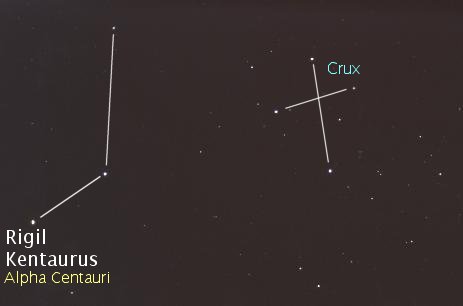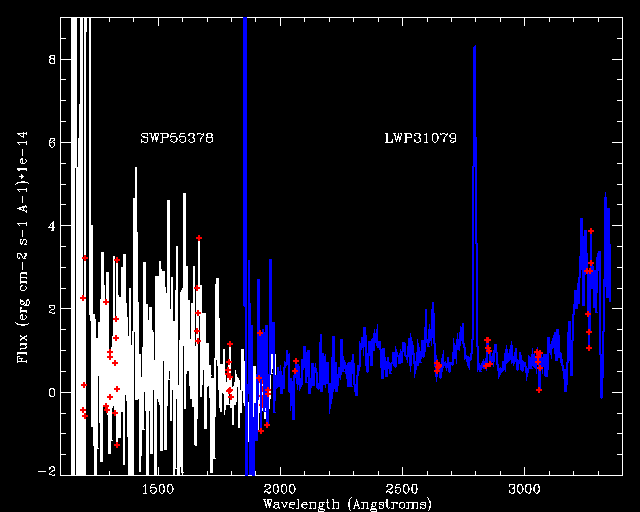

 Proxima Centauri is the third member of the double star Alpha
Centauri. It is located two degrees away from Alpha proper orbiting
with a period of at least a million years. Proxima is now on the
near side of its path and some 10,000 astronomical units closer than the
bright pair, making it actually the closest known star (but since it is
part of Alpha, surely it is still fair to call Alpha the closest
star). As a mid-class M dwarf star, Proxima is faint indeed,
to the eye 19,000 times dimmer than the Sun. From Alpha Cen proper,
Proxima would appear as only fifth magnitude, about as bright as the
faint stars of the Little Dipper. When infrared radiation produced by its
3100 Kelvin surface is accounted for it is seen to be more luminous, but
still only 1/500 as bright as the Sun, the result of a mass only 20%
solar.
Proxima Centauri is the third member of the double star Alpha
Centauri. It is located two degrees away from Alpha proper orbiting
with a period of at least a million years. Proxima is now on the
near side of its path and some 10,000 astronomical units closer than the
bright pair, making it actually the closest known star (but since it is
part of Alpha, surely it is still fair to call Alpha the closest
star). As a mid-class M dwarf star, Proxima is faint indeed,
to the eye 19,000 times dimmer than the Sun. From Alpha Cen proper,
Proxima would appear as only fifth magnitude, about as bright as the
faint stars of the Little Dipper. When infrared radiation produced by its
3100 Kelvin surface is accounted for it is seen to be more luminous, but
still only 1/500 as bright as the Sun, the result of a mass only 20%
solar.
Proxima is famed as a dwarf class M "flare star," one that
suddenly erupts with fearsome violence as a result of the collapse of its
complex and unstable magnetic fields. Since the star is close to
us, its inhabitants, were it to have any, would see much the same
constellation patterns that we do except that Centaurus would be missing
its brightest star and the stars that lie between Cassiopeia andPerseus
would be the setting for our first magnitude Sun, which would be the
eighth brightest in their sky.
Red crosses in the IUE spectra indicate bad-quality points. M-type
stars cannot be modelled using Kurucz's models.
